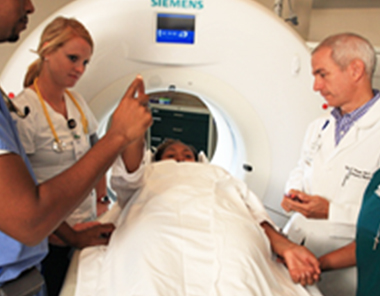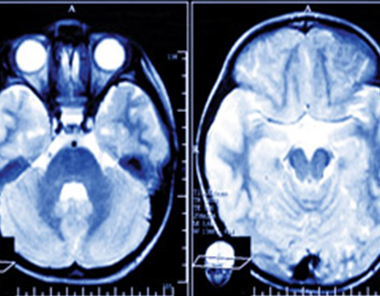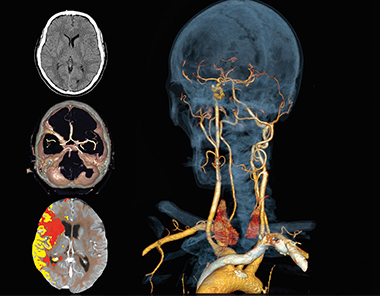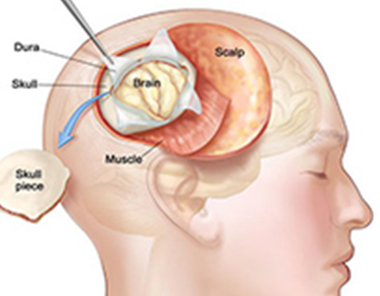Neuro
before vowels neur-, word-forming element meaning "pertaining to a nerve or nerves or the nervous system," from Greek neuro-, comb. form of neuron "nerve," originally "sinew, tendon, cord, bowstring," also "strength, vigor," from PIE *(s)neu- "tendon, sinew" (see nerve). neuro- in Medicine. neuro- or neur- pref.
OVERVIEW
The University of Oxford has a long and illustrious history of neuroscience research dating back to the seventeenth century. Today, Oxford is particularly strong in basic and clinical neuroscience, linking the function of genes and cells to systems and behaviour.
Clinical research focuses on experimental medicine, imaging and functional neuroscience on the areas of ophthalmology, mental health, neuropsychology and neurology.
There is a high degree of collaboration between basic and clinical scientists and a strong emphasis on translational research. Translational research spans the whole arena of neuroscience and includes the use of genetics, stem cells, drug discovery, biomarkers, gene therapy, brain stimulation and visual prostheses.
The University has particular strengths in the use of multimodal imaging, coupled with molecular and psychological profiling, to develop biomarkers of disease/treatment efficacy for pain, psychiatry and neurodegenerative disease.
Neuroscience research is performed in a number of departments and multidisciplinary centres/units across four sites,
mental health, neuropsychology and neurology.
There is a high degree of collaboration between basic and clinical scientists and a strong emphasis on translational research. Translational research spans the whole arena of neuroscience and includes the use of genetics, stem cells, drug discovery, biomarkers, gene therapy, brain stimulation and visual prostheses.
The University has particular strengths in the use of multimodal imaging, coupled with molecular and psychological profiling, to develop biomarkers of disease/treatment efficacy for pain, psychiatry and neurodegenerative disease.
Neuroscience research is performed in a number of departments and multidisciplinary centres/units across four sites,  which include departments at the John Radcliffe and Warneford Hospitals. Departments include Experimental Psychology, Pharmacology, Physiology Anatomy and Genetics, Psychiatry and the Nuffield Department of Clinical Neurosciences.
Centres and units include the MRC Brain Network Dynamics Unit, the Wellcome Trust Centre for Integrated Neuroimaging, Human Brain Activity, Parkinson’s Disease and the neuroscience themes of the NIHR funded Biomedical Research Centres at the John Radcliffe and Warneford Hospital.Treatments for Neurological Disorders. Following diagnosis, our Department offers a range of treatment options, including medications (topical, oral, and intravenous), device-based therapies (such as deep brain stimulation), surgeries (such as procedures to remove tumors), physical therapy, and rehabilitation.
which include departments at the John Radcliffe and Warneford Hospitals. Departments include Experimental Psychology, Pharmacology, Physiology Anatomy and Genetics, Psychiatry and the Nuffield Department of Clinical Neurosciences.
Centres and units include the MRC Brain Network Dynamics Unit, the Wellcome Trust Centre for Integrated Neuroimaging, Human Brain Activity, Parkinson’s Disease and the neuroscience themes of the NIHR funded Biomedical Research Centres at the John Radcliffe and Warneford Hospital.Treatments for Neurological Disorders. Following diagnosis, our Department offers a range of treatment options, including medications (topical, oral, and intravenous), device-based therapies (such as deep brain stimulation), surgeries (such as procedures to remove tumors), physical therapy, and rehabilitation.
About

Neuro- definition: Neuro- is used to form words that refer or relate to a nerve or the nervous system. | Meaning, pronunciation, translations and examples Neuroscience research is performed in a number of departments and multidisciplinary centres/units across four sites,John Radcliffe and Warneford Hospitals
Symtoms
Sensory Symptoms. Functional Tremor. Pain. Sleep Problems. Dizziness. Drop Attacks. Functional Jerks and Twitches. Headache. Post-ConcussionSyndrome. Bladder. Health Anxiety. Low Mood. Complex Regional Pain. Visual Symptoms. Other Symptoms. Causes. Treatment. Treatment Overview.

Causes

The specific causes of neurological problems vary but can include genetic disorders, congenital abnormalities or disorders, infections, lifestyle or environmental health problems - malnutrition, brain injury & Other Symptoms. Treatment Overview Complex Regional Pain spinal cord or nerve injury.
Treatments
Treatments for Neurological Disorders. Following diagnosis, our Department offers a range of treatment options, including medications (topical, oral, and intravenous), Bladder. Health Anxiety device-based therapies (such as deep brain stimulation),Other Symptoms surgeries , physical therapy, and rehabilitation
